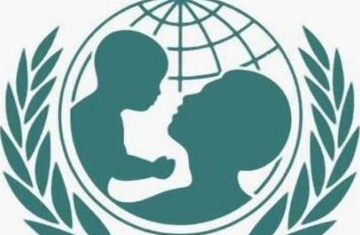
Source: UNICEF Ethiopia
Published: Thursday, February 26, 2009
Breakthrough on Female Genital Mutilation (FGM) and Call For National Plan
Addis Ababa – According to the 2007 UN Secretary General’s report on violence against children, Ethiopia is still one of the countries with the highest rates of Female Genital Cutting in Africa. The 2005 Ethiopia Demographic Health Survey (DHS) shows that the rate of FGM declined only 6% from 80% in 2000 to 74% in 2005.
“At this rate we will not see the elimination of FGM in Ethiopia until 2080” said Dr. Kerida McDonald, Head of the Communication, Gender and Rights division of UNICEF Ethiopia. “This means that at this rate none of us in this room, and few of our children born today, will live to see the abandonment of FGM during our life time”.
Dr. McDonald was addressing over one hundred stakeholders from UN agencies, NGOs, bilateral donor agencies and regional government bureaus gathered in the UNECA conference centre to review the findings of recently completed research on the abandonment of FGM conducted by UNICEF in collaboration with local NGO, Kembatti Mentti Gezzima-Tope (KMG).
“We have to stop accepting FGM in the name of culture because the root cause of FGM is really the acceptance of gender apartheid,” said KMG Executive Director Dr. Bogaletch Gebre in her opening remarks. “Racial supremacy gives privilege and power to whites over blacks while the patriarchal system of gender apartheid gives privilege and power to men over women and accepts daily acts of violence against women.”
The research on the Social Dynamics Leading to the Abandonment of FGM in Kembatta and Tembaro Zone in Southern Ethiopia, documents for the first time, the pioneering work of KMG in breaking the cycle of the harmful cultural practice of cutting and removal of the female genitalia. The successful strategies include: Fortnightly Community Dialogues focusing on FGM and other harmful traditional practices; Establishment of Girls Clubs to protest against cutting and proclaim their rights; Staging of special events such as public weddings of uncircumcised girls; Screening of videos showing the practice of cutting and testimonies of circumcised girls and women; Mobilizing local police to arrest violators of the law; Training of paralegals to assist women victims in securing justice; Assisting circumcisers to secure alternative means of income; Building alliances with religious leaders, Edirs and local government authorities. The quantitative survey conducted as one component of the UNICEF-KMG research confirms that there is near total abandonment of the practice of FGM in the Kembatta and Tembaro zones compared to the 97% of households that used to practice FGM.
“We are proud to bring to you the findings of our breakthrough work,” said Dr. Bogaletch. “Although it is only in a limited number of zones, we now have a concrete methodology documented and I can’t wait until it is franchised across Ethiopia.”
In discussing the way forward, the participants called upon the Ministry of Women’s Affairs to lead the development of a national plan for scaling up interventions for the abandonment of FGM. Other recommendations included mapping of agencies working on FGM; development of a national guideline on FGM abandonment; identification of long-term and flexible funding; identification of Champions against FGM in each region.
“Based on feedback from our Innocenti Research Centre in Geneva, Ethiopia seems to have captured the world with these research findings” said Isa Achoba, Chief of Monitoring and Evaluation at UNICEF, “But more important than international interest, is the attention of the Ethiopian Government to take this model and scale it up to show the world how the country that can boast resisting the siege of colonialism, can also resist the stranglehold of violence against women.”
In December 2001 (Ethiopian Calendar) a high level inter-ministerial committee under the leadership of the Ministry of Justice was established to address Gender-Based Violence. Three technical subcommittees on Prevention, Response and Support were recommended to meet on a monthly basis to chart and implement strategies. The Ministry of Women’s Affairs was designated to take the lead on the Prevention along with the Ministry of Education. However since December, the Prevention sub-committee is yet to meet and stakeholders are now calling for action.
Source: Unicef – For further information contact: Dr. Kerida McDonald, Unicef Ethiopia, 011-544-4400 ext. 4018


























Good information on FGM.